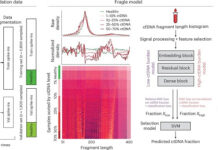Antimicrobial resistance (AMR) poses an escalating global health threat. When bacteria evolve to resist antibiotics that once treated them effectively, even routine infections—like pneumonia, urinary tract infections, and skin wounds—become difficult to manage. Alarmingly, studies reveal that over 70% of hospital-acquired infections in low- and middle-income countries resist at least one commonly used antibiotic.
Limitations of Traditional Drug Development
Developing new antibiotics through conventional methods is time-consuming and costly. Typically, the process spans over a decade and demands significant financial resources. Faced with this challenge, medical professionals are increasingly relying on drug repositioning—the practice of finding new uses for existing medications—as a faster, more cost-effective solution.
AI-Powered Solution from Indo-French Collaboration
In response to this urgent need, a team of researchers from Inria Saclay (France) and the Indraprastha Institute of Information Technology Delhi (IIIT-Delhi) has developed an innovative artificial intelligence (AI) system that recommends alternative antibiotics for treating drug-resistant bacterial infections. The project is led by Dr. Emilie Chouzenoux and Dr. Angshul Majumdar. It also includes Stuti Jain, a research engineer, and graduate researchers Kriti Kumar and Sayantika Chatterjee.
A Hybrid AI Model Built on Real-World Data
Unlike conventional systems that rely solely on static rules or antibiotic databases, this hybrid AI model learns from real-world clinical data. The researchers gathered detailed antibiotic usage protocols from leading Indian hospitals to mirror current treatment patterns. They enriched this data with molecular-level insights, such as bacterial genome sequences and the chemical structures of antibiotics, enabling the system to identify viable, lesser-used treatment options.
Successful Testing on Multidrug-Resistant Bacteria
The AI tool underwent rigorous validation through case studies involving multidrug-resistant pathogens including:
- Klebsiella pneumoniae (a major cause of hospital infections)
- Neisseria gonorrhoeae (responsible for gonorrhoea)
- Mycobacterium tuberculosis (the bacterium behind tuberculosis)
In each instance, the system suggested antibiotics with known or emerging effectiveness. Experts cross-checked these recommendations with resistance data and clinical expertise to verify their potential.
Clinical Relevance and Future Applications
Dr. Majumdar emphasized the significance of this work, stating, “This is an excellent example of how AI and international collaboration can come together to solve real-world medical challenges. Our method uses existing knowledge more efficiently and allows for faster, smarter responses to AMR.”
As reported by Express Pharma, the research team envisions the AI tool being integrated into hospital and public health systems. It can assist clinicians and microbiologists in reducing treatment delays and improving antibiotic stewardship. It also enhances decision-making, especially in regions with limited diagnostic capabilities.
Towards Smarter Infection Management
Looking ahead, the researchers believe this technology will play a vital role in shaping the future of infection control. By optimizing the use of current antibiotics through AI-driven insights, healthcare systems can improve treatment strategies. This enables a more effective response to the growing crisis of drug-resistant infections.
























